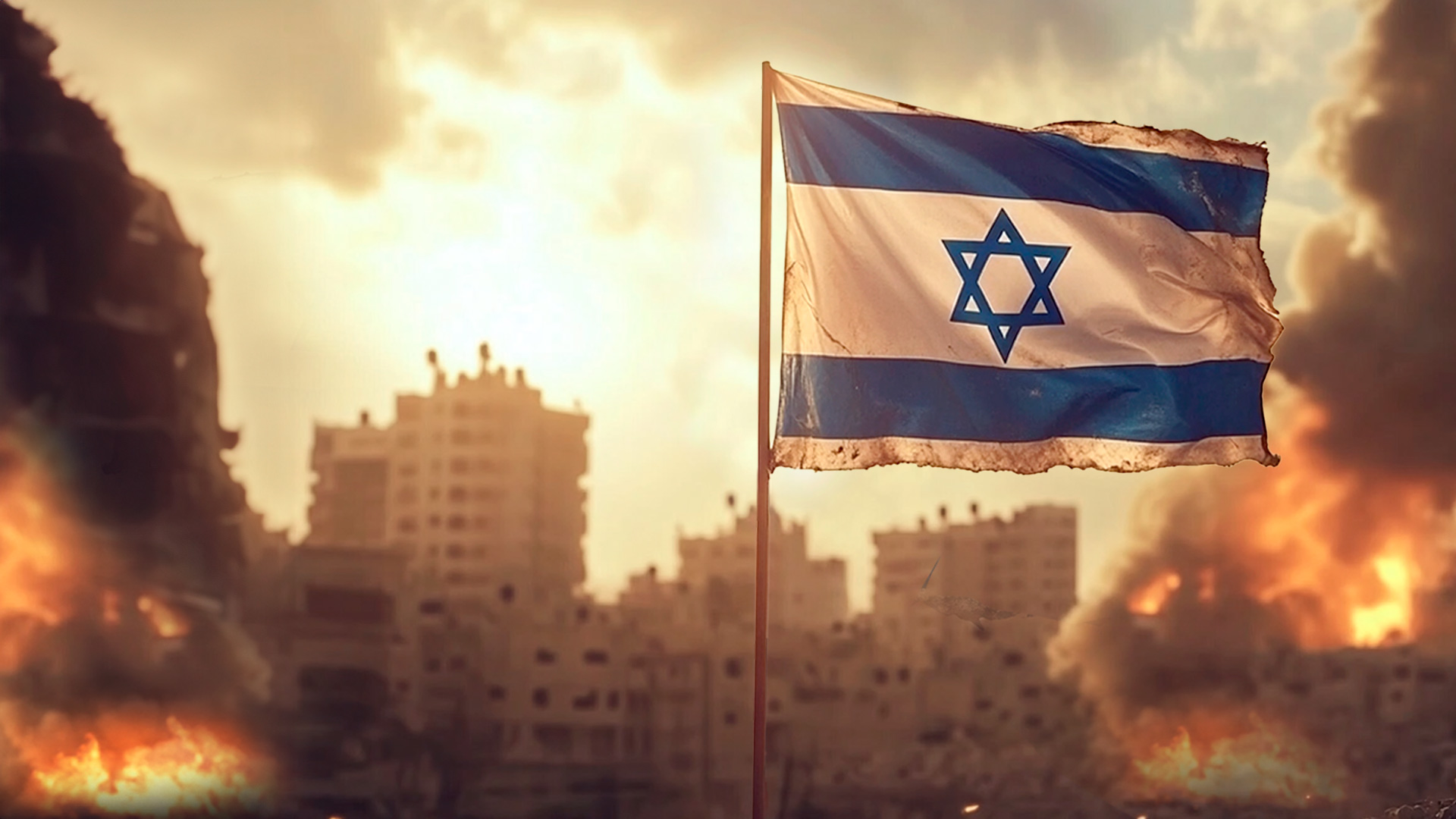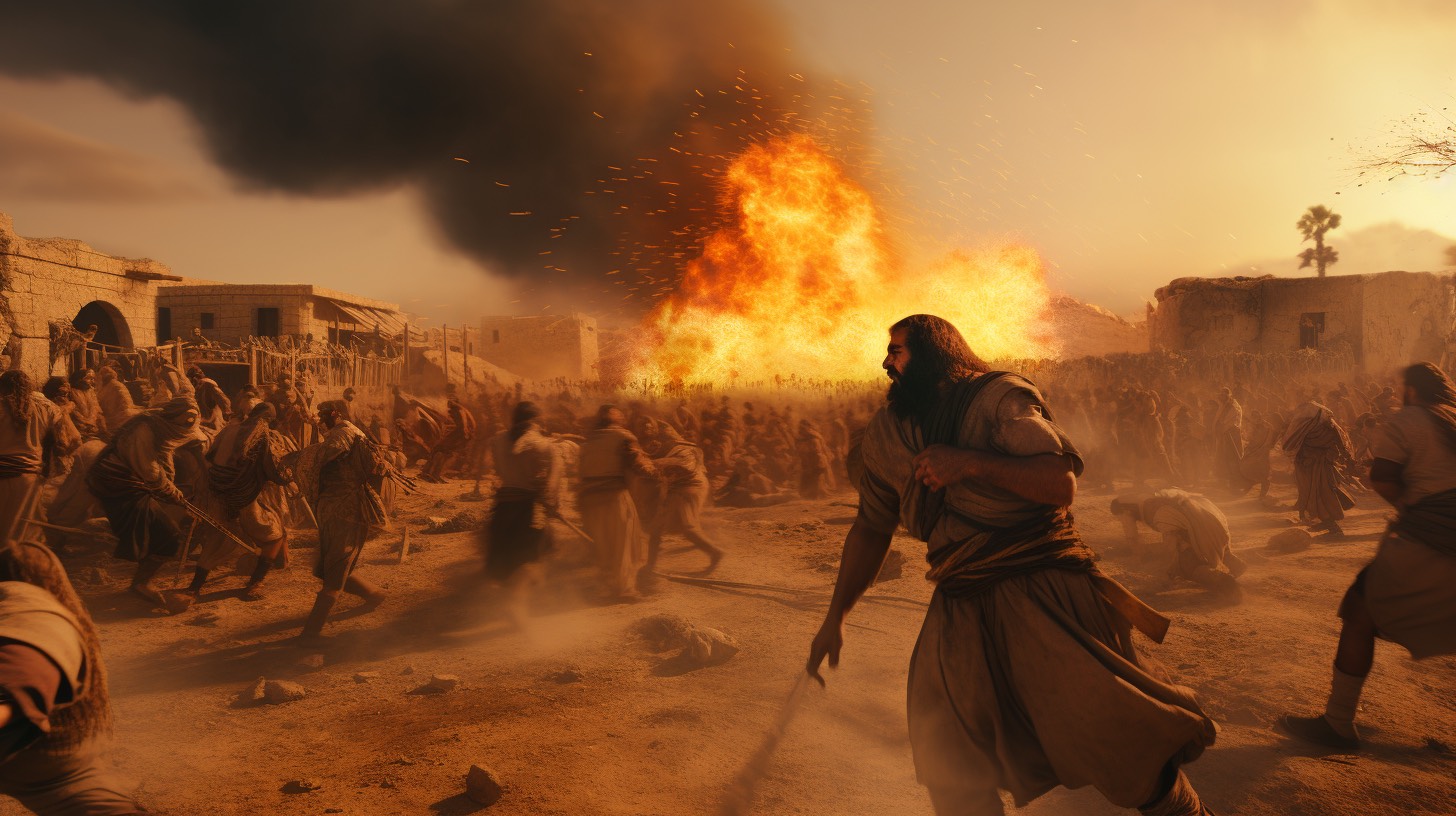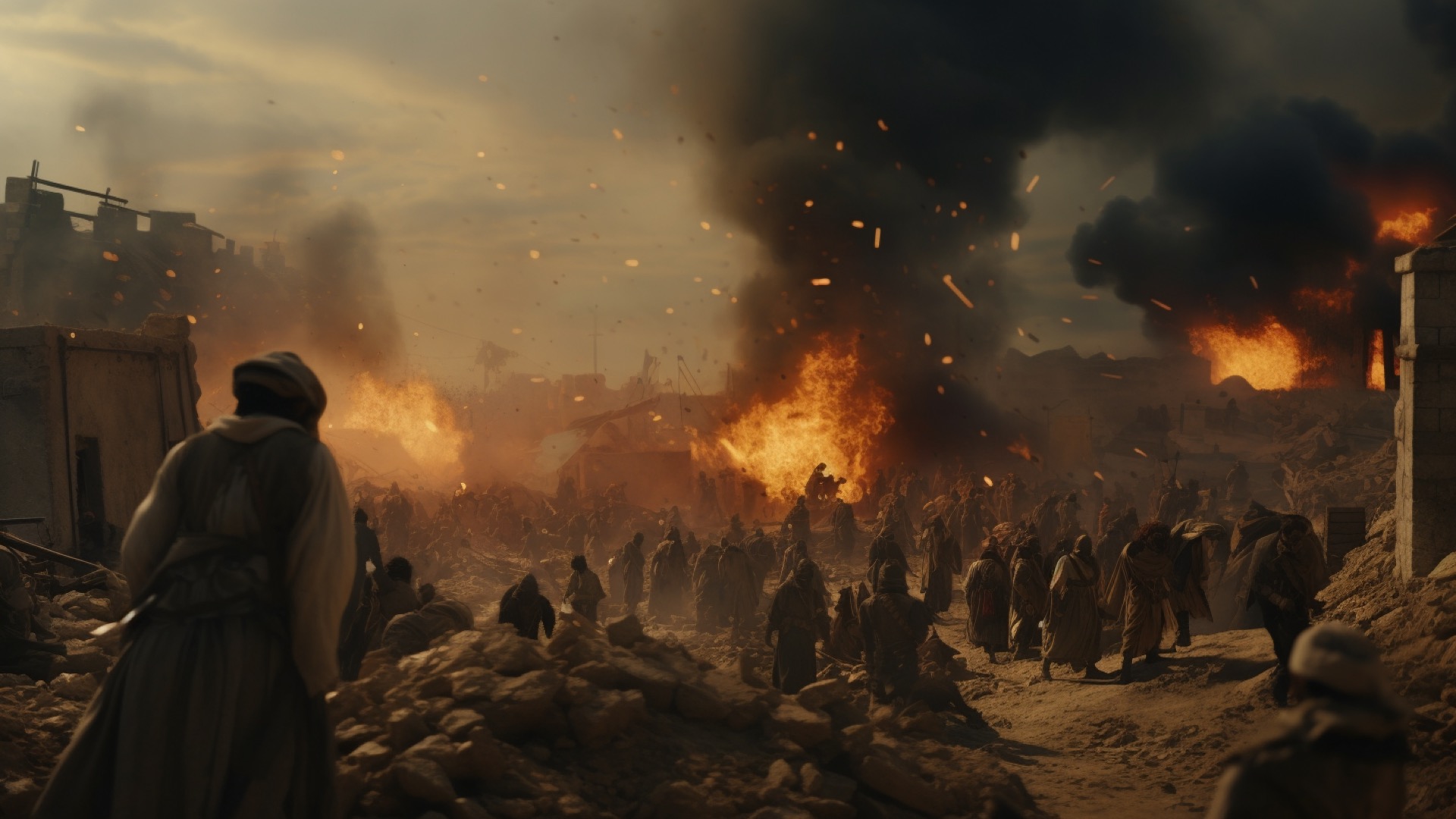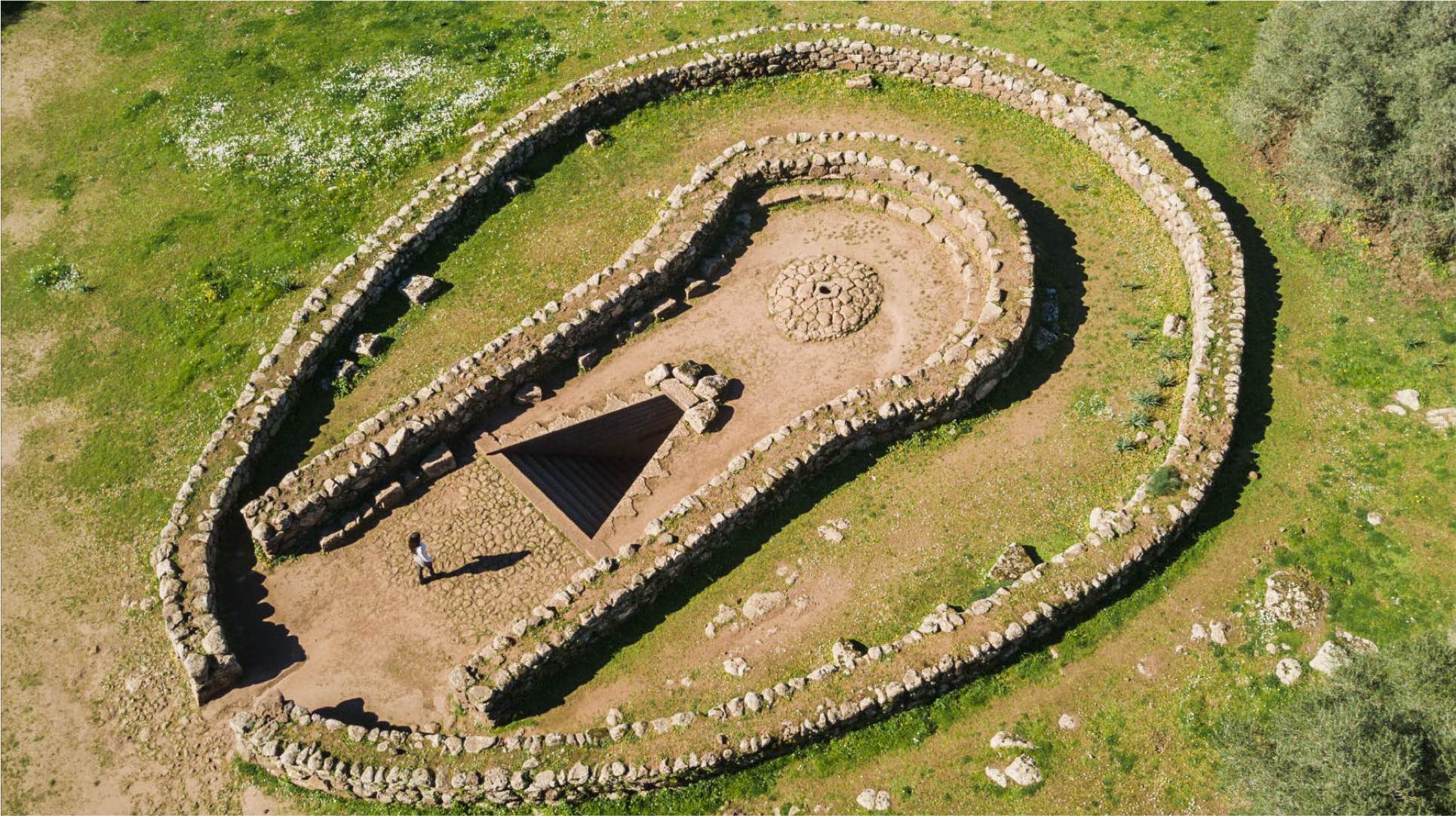The Israeli-Palestinian conflict, which has been in the center of international news for over seventy years, finds one of its historical and theological justifications in biblical texts. The “Abrahamic Covenant” (Genesis 15:18), is still evoked today as the basis for legitimizing the state of Israel’s possession of the land. As evidence of this, we can cite the “Abrahamic Covenants” signed in a joint declaration between Israel, the United Arab Emirates and the United States on August 13, 2020. Subsequently, the term was again used in reference to the agreements between Israel, the United Arab Emirates and Bahrain.
Mauro Biglino, through reading the Bible, offers a reflection on how such ancient texts still manage to influence and support territorial and political claims today.
In this article we will faithfully follow Biglino’s reading, based on a new edition of the Bible edited by Einaudi, reporting the most significant passages that link the past to the current reality of the conflict.
English subtitles
The covenant with Abraham (Genesis 15:18
Mauro Biglino begins his reading by reporting Yahweh’s promise to Abraham, one of the roots of Israel’s territorial claim:
“On that day, the Lord – that is, Yahweh – made a covenant with Abram: ‘To your descendants I give this land, from the river of Egypt to the Great River, the Euphrates River, that is, the Qenites, the Qenizzites, the Qadmonites, the Hittites, the Perizzites, the Rephaim, the Amorites, the Canaanites, the Ghibashites and the Jebusites…’
This “divine” declaration assigns to Abraham and his descendants a vast area from the Nile to the Euphrates, including many peoples already in the land The author reflects on how this promise is still cited today to justify territorial occupation in Israel, suggesting a parallel between the ancient text and modern actions.
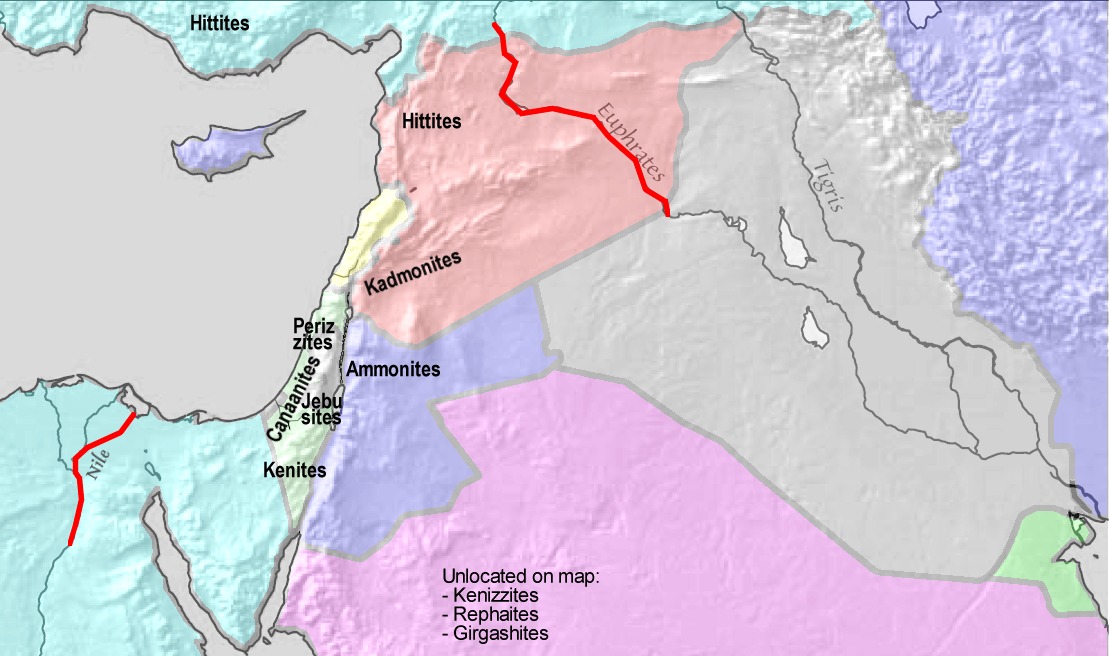
The promise reiterated to Joshua (Joshua 1:3-6)
The reading continues with Yahweh confirming the promise made to Abraham also to Joshua, the leader of Israel who will lead the people in conquering the promised land
“I have assigned to you every place that will cross the soles of your feet, as I said to Moses. Your territory will extend from the desert and from this Lebanon to the Great River, the Euphrates, all the land of the Hittites and as far as the Mediterranean Sea in the west No one will be able to oppose you…. Be strong and courageous, Joshua, for you will cause this people to inherit the land that I swore to their fathers to give them.”
This passage highlights how Yahweh reaffirms the covenant to Joshua, entrusting him with the task of conquering and distributing the promised land Biglino underscores the importance of these words, used as justification for the appropriation of territories at the expense of indigenous peoples
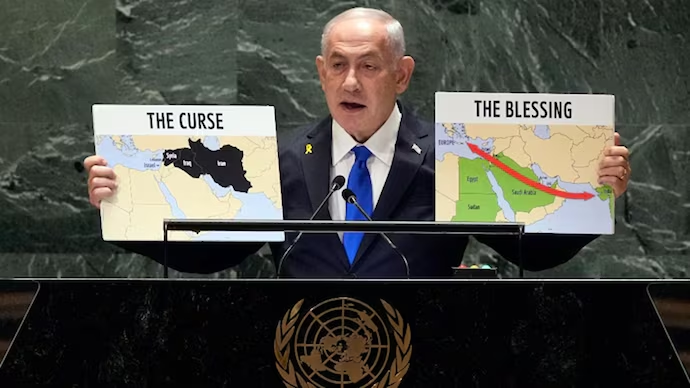
Dispossession and destruction of the inhabitants of Canaan (Numbers 33:50-56)
One of the starkest passages concerns the order given by Yahweh to Moses to dispossess the land of Canaan and destroy its inhabitants
“In the steppes of Moab, along the Jordan, near Jericho, Yahweh spoke to Moses: ‘Speak to the children of Israel and report to them: when you have crossed over the Jordan and are in the land of Canaan, dispossess all the inhabitants of the land before you, destroy all their depictions; destroy all their molten metal images and demolish all their high places. Take possession of the land and establish yourselves there, for I have assigned the land for you to possess it.. But if you do not dispossess before you the inhabitants of the land, let those to whom you have granted to remain be thorns in your eyes and pricks in your sides, and let them torment you in the land in which you will live; thus, as I had set out to treat them, I will treat you.”
This divine command of dispossession and total destruction is interpreted by Biglino as a precursor to the current dynamics of colonization and conflict in the region Yahweh’s command to leave no survivors reflects a pattern of violent appropriation that, according to the author, continues to influence modern politics.
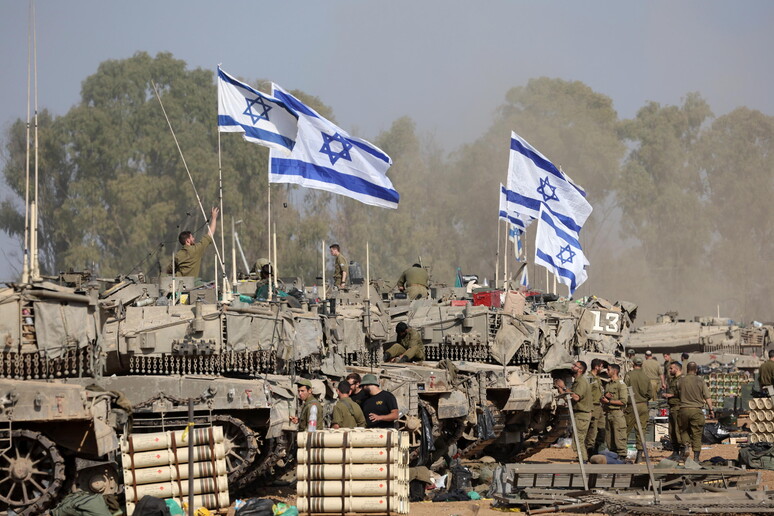
Joshua’s conquest and extermination of the inhabitants (Joshua 10:28-43)
Biglino continues his reading with a description of Joshua’s military campaigns, which saw the total annihilation of the local populations
“That same day Joshua took possession of Maqqedah and passed the city and its king by the edge of the sword, vowing them extermination with every being there living, leaving no survivors He treated the king of Maqqedah as he had treated the king of Jericho. Joshua moved with all Israel from Maqqedah to Livnah and attacked Livnah. Yahweh also put that and its king in the power of Israel, who passed it by the edge of the sword with every being there living, leaving no survivor And he treated his king as he had treated the king of Jericho…. Joshua with all Israel went up from Eglòn to Hebròn, and they attacked it. They conquered it and passed it by the edge of the sword, with its king, its cities and every being there living He left no survivor, as he had done to Eglòn: he vowed her to extermination with every being there living So Joshua cleared out the whole land: the mountainous region, the Negev, the Shefelah, the slopes, and all their kings He left no survivors and vowed to exterminate every living thing as Yahweh, God of Israel, had commanded.”
These verses record a sequence of exterminations conducted under Yahweh’s command to leave no survivor Biglino reflects on how these episodes of total extermination are deeply rooted in the biblical narrative and are still echoed today in justifications for violent actions in the name of land possession.
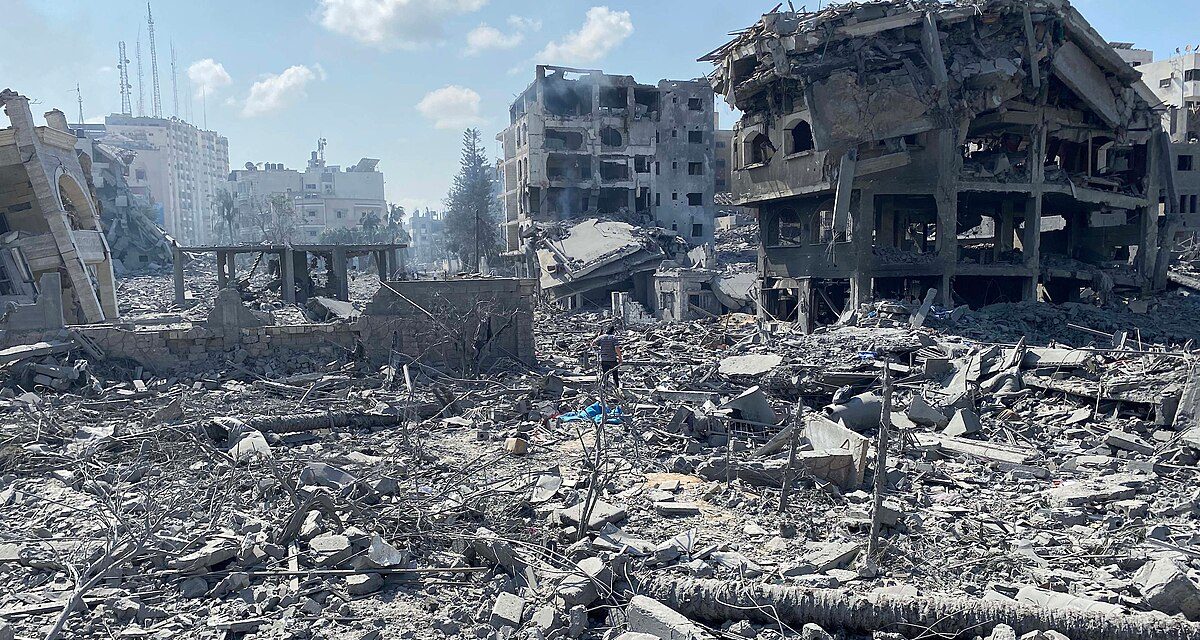
The division of the land (Numbers 34:1-5)
Next, the author reads the portion of the Bible in which Yahweh commands Moses to demarcate the boundaries of the land to be allotted to the tribes of Israel
“Yahweh spoke to Moses: ‘Command the children of Israel and say to them, When you enter the land of Canaan, let that be the land that shall come to you as your hereditary possession: the land of Canaan bounded by its borders. Your southern region shall extend from the wilderness of Tzin, flanking Edom; so that your southern boundary shall start from the end of the Dead Sea in the east.. Your western boundary will be the Mediterranean Sea-this will be your western border.”
This subdivision and demarcation of the land is described in great detail, precisely marking the boundaries of the land allotted by Yahweh to the Israelites Here again, the biblical narrative seems to foreshadow current issues of boundaries and territorial claims in the region.
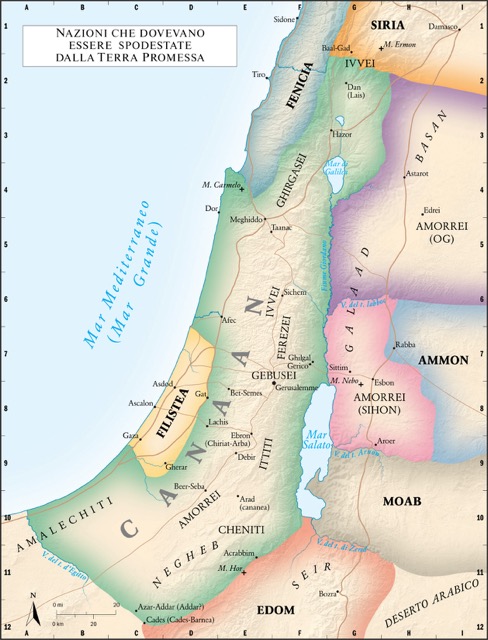
The final extermination command (Numbers 31:1-18)
Finally, Biglino reads one of the most controversial episodes in the biblical text, in which Yahweh orders vengeance against the Midianites
“Moses spoke to the people: ‘Let men be mobilized from among you for a military campaign and let them swoop down on Midian to carry out Yahweh’s vengeance against Midian. They moved, therefore, against Midián as Yahweh had commanded Moses, and they killed all the males…’ Moses was angry at the commanders of the army…and said to them, ‘You have spared all the females!… Now kill every male among the young men, and so do with every female who has had sexual relations with a male All the girls who have not had sex with a male leave them alive for you.”
Biglino closes his reading with this passage, highlighting the horror of a command ordering the indiscriminate extermination of males and women, sparing only the girls (actually the Bible speaks of “bambie”) virgins for the soldiers This episode represents, according to the author, a clear testimony to the violence associated with divine covenants, often used to justify violent actions even in the modern context.

Conclusion
This reading highlights how ancient texts still exert their influence today by authorizing violent actions aimed at the possession of new territories The “Covenants of Abraham,” thus the promises made by Yahweh and the extermination orders that are extensively described in the Bible, continue to provide a narrative that seems to legitimize the actions of occupation and violence we have long witnessed The Bible, written more than 2,500 years ago, still seems to be a timely chronicle of the conflict that inflames the Middle East


